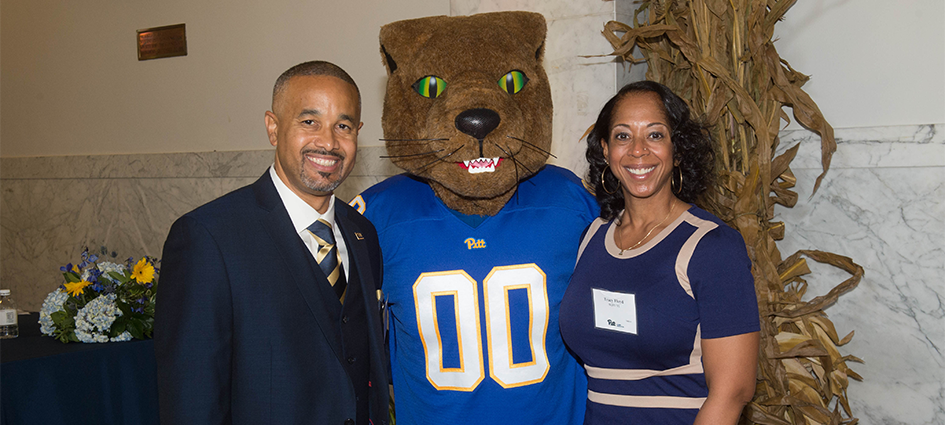
To make ends meet while in school, Tracy Floyd (née Glenn) (NURS ’91) worked a variety of jobs—at times, she held two off-campus jobs and carried a full course load. When asked how that affected her grades, she answered, “My grades were up; well, I wasn’t failing.”
Her classwork clearly sunk in because now, 30 years later as a nurse in a gastroenterology unit, Floyd says she still uses the knowledge she gained as a student.
“What you learn in nursing school you use for the rest of your professional life,” Floyd said. “Chemistry was my worst class, but now I use it virtually every day.”
Upon graduating, Floyd moved around a bit before landing in Delaware, where she lives with her husband, Darryl Floyd (A&S ’89, MED ’94), and two children. She followed Darryl to North Carolina for his residency and stayed there for his first job. They later moved back north after their oldest son was diagnosed with autism, thinking he would get a better menu of services in New Jersey, which at the time was known for its efforts to support children with special needs in public schools.
Through it all, she has remembered her University of Pittsburgh roots. Floyd says she and her husband get together with other alumni in their self-designed running club—“we call ourselves The Panther Prowl.”
Floyd went so far as to donate a kidney to classmate Carla Jackson (CGS ’91) in 2016. The two had not been in touch since graduation other than through social media and a chance meeting at a homecoming event in 2010. Five years later, Jackson was on the waiting list for a kidney and put a post on Facebook asking for financial donations for a National Kidney Foundation walk. Floyd responded that she would donate a kidney. Luckily, they were a match.
“My father died waiting for a kidney transplant and because I have a different blood type I was not able to help him,” Floyd said. “From then on I always wanted to find a way to help others in a similar situation. I did not want another family to go through the pain of watching a loved one die from something that potentially could have been prevented.”
For years, Tracy volunteered with the Pitt African American Alumni Council, and she recently joined the Pitt Alumni Association Board. Further, she serves on the committee that is most near to her heart: the scholarship committee.
“Going to school is expensive, and a lot of minority students do not have the resources,” Floyd said. “People think the major accomplishment is being admitted; the real accomplishment is being able to afford a college education all the way through to graduation.”
Floyd traces much of her philanthropy to a sermon her pastor gave nearly 10 years ago. In it he told his members that if they were blessed with good jobs and if their college education was at all a reason for that, they needed to give back to their alma mater to help others.
“Our students need it. And, we need to help Pitt students,” Floyd said. “They depend on us, they need us to help them.”
More recently, Floyd decided to honor her father, who never had the opportunity to go to college, by creating a scholarship in his name. She did so by purchasing a $100,000 life insurance policy on herself and naming the University as the beneficiary.
“You might not think it is realistic for someone to donate on this large scale,” Floyd said. “But the life insurance approach really is affordable.”
Naming the University of Pittsburgh as a beneficiary of a policy allows donors to create a fund to support a scholarship or program while keeping other assets earmarked for family members and without diluting your estate.
There are several ways to give life insurance to Pitt, such as donating an existing, paid-up policy; purchasing a new policy; giving an existing policy while continuing to make the payments; and naming Pitt as a beneficiary of a policy you retain.
Because she took out the policy while still in her 40s, Floyd’s monthly premiums are less than $100.
“My heart is with the School of Nursing, and I want to honor my father. Taking out the policy seemed like a no-brainer,” said Floyd. “And it will make college affordable for students long into the future.”
